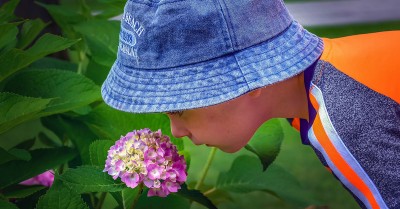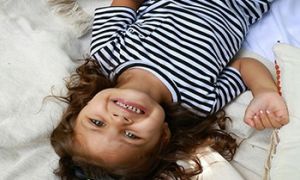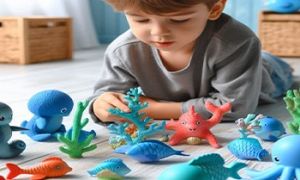Plants form the basis of many science experiments. Children can learn so much from observing the growth of plants and flowers. The following article provides information on a list of Indoor Plants, a list of Outdoor Plants, Benefits Of Having Plants In Early Childhood, Linking To The EYLF and more.
Indoor Plants
When looking for indoor plants for your early childhood services, look for plants that are interesting, that need no or very little water, ones that use less fertilizer, and plants that change carbon into good air.
Here is a list of child-friendly indoor plants:
-
-
Spider Plant (Chlorophytum comosum): Known for its striking, variegated leaves, it's non-toxic and great for hanging baskets.
-
Boston Fern (Nephrolepis exaltata): This plant has graceful fronds and thrives in humid environments.
-
Ponytail Palm (Beaucarnea recurvata): With its bulbous trunk and long, hairlike leaves, it's easy to maintain and looks like a cartoon tree.
-
Jade Plant (Crassula ovata): A low-maintenance plant with dark green foliage.
-
Areca Palm (Dypsis lutescens): This tall plant purifies indoor air and has glossy green leaves.
-
Lucky Bamboo (Dracaena sanderiana): Known for bringing good luck, it's easy to care for and safe for kids.
-
Baby’s Tears (Soleirolia soleirolii): With its tiny, rounded leaves, it's safe for children and pets.
-
Parlour Palm (Chamaedorea elegans): A tropical plant that adds a lovely touch to any room.
-
Air Plant (Tillandsia spp.): These plants don't require soil and get nutrients from the air, making them fascinating for kids.
-
African Violet (Saintpaulia): Beautiful blooming plant that's safe and easy to care for.
-
Peperomia (Peperomia spp.) Small, attractive, and easy to care for, these plants come in various colors and shapes.
-
Prayer Plant (Maranta leuconeura): Known for its striking leaves that fold up at night, it's safe for children.
-
Christmas Cactus (Schlumbergera): Blooms beautifully and is non-toxic.
-
Hoya (Hoya spp.): Also known as Wax Plant, it has lovely, fragrant flowers.
-
Parlor Palm (Chamaedorea elegans): This is a low-maintenance plant that thrives in indoor conditions.
-
Cast Iron Plant (Aspidistra elatior): Extremely hardy and can tolerate low light, making it perfect for kids’ rooms.
-
Aluminum Plant (Pilea cadierei): Unique silvery leaves and easy to grow.
-
Sweet Basil (Ocimum basilicum): Not only is it safe, but you can also use it in your cooking.
-
Lemon Balm (Melissa officinalis): Safe and fragrant, perfect for adding a fresh scent to your home.
-
Polka Dot Plant (Hypoestes phyllostachya): Colorful and safe, this plant has spotted leaves that can captivate children.
-
Outdoor Plants
Here are some child-friendly outdoor plants that are safe and great for gardens:
-
Sunflower (Helianthus annuus): Tall, bright, and fun to watch grow, sunflowers are a favorite with kids.
-
Marigold (Tagetes): Easy to grow and bright, these flowers can add a splash of color to your garden.
-
Sweet Pea (Lathyrus odoratus): These climbing plants have beautiful, fragrant flowers that children will love.
-
Nasturtium (Tropaeolum): Easy to grow and edible, these flowers can be a fun addition to a garden salad.
-
Snapdragon (Antirrhinum): These vibrant flowers have a unique shape that can captivate children’s imaginations.
-
Lavender (Lavandula): Safe and fragrant, lavender can be used for crafting sachets or simply enjoyed in the garden.
-
Cherry Tomato (Solanum lycopersicum): Fun to pick and eat right off the vine, cherry tomatoes are a great way to get kids interested in gardening.
-
Lamb's Ear (Stachys byzantina): This plant has soft, fuzzy leaves that are fun to touch.
-
Butterfly Bush (Buddleja): Attracts butterflies, providing a natural way to observe these beautiful insects.
-
Blueberry Bush (Vaccinium corymbosum): Not only do they produce delicious fruit, but they also have lovely flowers and foliage.
-
Zinnia (Zinnia elegans): These bright and vibrant flowers are easy to grow and attract butterflies.
-
Petunias (Petunia spp.): Colorful and hardy, petunias are great for adding a burst of color to your garden.
-
Calendula (Calendula officinalis): Also known as pot marigold, it's edible and has medicinal properties.
-
Alyssum (Lobularia maritima): With its tiny, fragrant flowers, alyssum is perfect for borders and hanging baskets.
-
Raspberry Bush (Rubus idaeus): Kids will love picking and eating fresh raspberries right from the garden.
-
Dianthus (Dianthus spp.): These small, colorful flowers have a pleasant fragrance and are safe for children.
-
Strawberry Plant (Fragaria × ananassa): Growing strawberries is a fun and rewarding experience for kids.
-
Pansies (Viola tricolor var. hortensis): Their cheerful, multi-colored blooms are a delight to look at.
-
Salvia (Salvia spp.): Known for its vibrant spikes of flowers, salvia is safe and attracts hummingbirds.
-
Impatiens (Impatiens walleriana): These shade-loving plants are colorful and easy to care for.
Benefits Of Having Plants In Early Childhood
Having plants around young children has a multitude of benefits! Here are some of the key advantages:
-
Promotes Responsibility: Taking care of plants teaches children responsibility as they learn to water and tend to their green friends.
-
Enhances Learning: Plants provide hands-on learning opportunities about biology, ecology, and environmental stewardship.
-
Improves Air Quality: Indoor plants can help purify the air, creating a healthier environment for children.
-
Reduces Stress and Anxiety: Being around plants can have a calming effect and reduce stress levels in children.
-
Encourages Healthy Eating: Growing edible plants like herbs and vegetables can encourage children to eat more fresh produce.
-
Boosts Creativity: Engaging with plants and nature can inspire creativity and imaginative play.
-
Teaches Patience and Observational Skills: Watching plants grow and change over time teaches patience and improves observational skills.
-
Increases Concentration and Productivity: Studies have shown that being around plants can help improve concentration and overall productivity.
-
Fosters a Connection to Nature: Having plants around helps children develop a connection to nature and appreciate the natural world.
-
Provides Sensory Experiences: Plants offer a variety of sensory experiences—touching different textures, smelling fragrances, and observing various colors and shapes.
Incorporating plants into early childhood settings not only makes the environment more vibrant and welcoming but also supports the holistic development of children.
Linking To The EYLF
The Early Years Learning Framework (EYLF) is a guide for early childhood educators in Australia, focusing on Belonging, Being, and Becoming. Here's how you can link activities involving plants to the EYLF:
-
Outcome 1: Children have a strong sense of identity:
-
1.1 Children feel safe, secure, and supported: Creating a nurturing environment with plants can help children feel more connected to nature and their surroundings.
-
1.2 Children develop their emerging autonomy, interdependence, resilience, and sense of agency: Allowing children to take responsibility for watering plants can foster a sense of autonomy and responsibility.
-
-
Outcome 2: Children are connected with and contribute to their world:
-
2.1 Children develop a sense of belonging to groups and communities: Group activities like planting a garden can help children feel part of a community.
-
2.2 Children respond to diversity with respect: Learning about different plants from various cultures can teach children to appreciate diversity.
-
-
Outcome 3: Children have a strong sense of wellbeing:
-
3.1 Children become strong in their social and emotional wellbeing: Spending time in nature and caring for plants can reduce stress and promote emotional wellbeing.
-
3.2 Children take increasing responsibility for their own health and physical wellbeing: Engaging in gardening activities can encourage physical activity and healthy eating habits.
-
-
Outcome 4: Children are confident and involved learners:
-
4.1 Children develop dispositions for learning such as curiosity, cooperation, confidence, creativity, commitment, enthusiasm, persistence, imagination, and reflexivity: Exploring plants and their growth can spark curiosity and creativity.
-
4.2 Children develop a range of skills and processes such as problem-solving, inquiry, experimentation, hypothesizing, researching, and investigating: Activities like planting seeds and observing growth can develop problem-solving and investigative skills.
-
-
Outcome 5: Children are effective communicators:
-
5.1 Children interact verbally and non-verbally with others for a range of purposes: Discussing plants and their care can enhance communication skills.
-
5.2 Children engage with a range of texts and gain meaning from these texts: Reading books about plants and nature can improve literacy skills.
-
5.3 Children express ideas and make meaning using a range of media: Creating art projects based on plants can help children express their ideas creatively.
-
5.4 Children begin to understand how symbols and pattern systems work: Learning about plant life cycles and patterns can enhance understanding of symbols and systems.
-
5.5 Children use information and communication technologies to access information, investigate ideas, and represent their thinking: Using apps or websites to learn more about plants can integrate technology into learning.
-
By incorporating plants into your early childhood program, you can create a rich, engaging, and educational environment that aligns with the EYLF outcomes.



 As an Educator in Australia, your pay rate falls under the Children’s Services Award 2010. This award states the minimum amount that an employer can
As an Educator in Australia, your pay rate falls under the Children’s Services Award 2010. This award states the minimum amount that an employer can When working as a qualified Early Childhood Teacher (with a university degree) within a service, your rate of pay will come from the Educational Services
When working as a qualified Early Childhood Teacher (with a university degree) within a service, your rate of pay will come from the Educational Services When working as a Diploma Qualified Educator your pay rate is from the Children's Services Award 2010. This Award states your minimum rate of pay
When working as a Diploma Qualified Educator your pay rate is from the Children's Services Award 2010. This Award states your minimum rate of pay When working as a Cert 3 Qualified Educator, your pay rate is from the Children's Services Award 2010. This Award states your minimum rate of
When working as a Cert 3 Qualified Educator, your pay rate is from the Children's Services Award 2010. This Award states your minimum rate of Educational Leaders play a crucial role in their early childhood service by ensuring that the educational program aligns with best practices and supports the holistic
Educational Leaders play a crucial role in their early childhood service by ensuring that the educational program aligns with best practices and supports the holistic In early childhood education and care, ratios are more than a technicality—they are a frontline safeguard. Every child deserves responsive supervision, emotional connection, and developmental
In early childhood education and care, ratios are more than a technicality—they are a frontline safeguard. Every child deserves responsive supervision, emotional connection, and developmental With the new national child safety reforms kicking in on 1 September 2025, early childhood services like yours have a real opportunity to lead the
With the new national child safety reforms kicking in on 1 September 2025, early childhood services like yours have a real opportunity to lead the Here’s a comprehensive Mobile Phone and Smart Watch Policy tailored for early childhood education and care (ECEC) services in Australia, aligned with the latest 2025
Here’s a comprehensive Mobile Phone and Smart Watch Policy tailored for early childhood education and care (ECEC) services in Australia, aligned with the latest 2025 The Sea of Fish Challenge is a national initiative that invites children, educators, families, and communities to create and display fish artworks as a symbol
The Sea of Fish Challenge is a national initiative that invites children, educators, families, and communities to create and display fish artworks as a symbol Across the early childhood education and care sector, educators are sounding the alarm: current staffing ratios are insufficient to deliver safe, meaningful, and developmentally appropriate
Across the early childhood education and care sector, educators are sounding the alarm: current staffing ratios are insufficient to deliver safe, meaningful, and developmentally appropriate


